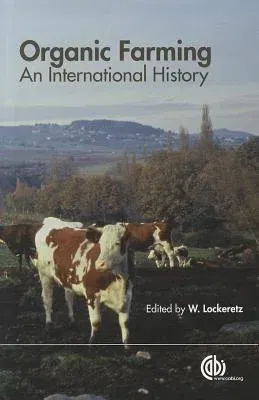Organic Farming: An International HistoryPaperback, 6 May 2011

Qty
1
Turbo
Ships in 2 - 3 days
Only 1 left
Free Delivery
Cash on Delivery
15 Days
Free Returns
Secure Checkout

Print Length
290 pages
Language
English
Publisher
Cabi
Date Published
6 May 2011
ISBN-10
1845938763
ISBN-13
9781845938765
Description
Product Details
Book Format:
Paperback
Country of Origin:
GB
Date Published:
6 May 2011
Dimensions:
23.11 x
15.49 x
1.78 cm
ISBN-10:
1845938763
ISBN-13:
9781845938765
Language:
English
Pages:
290
Publisher:
Weight:
566.99 gm